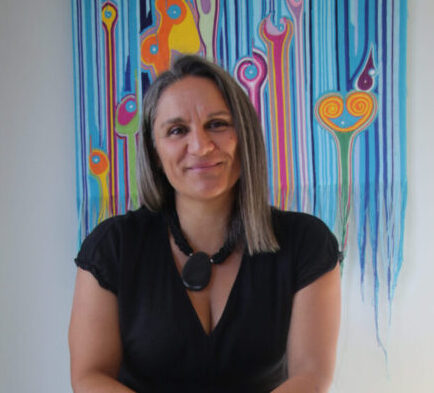The quick answer is yes, I believe it can. But let’s unpack that answer. Let’s begin to understand a little of what it is that makes us happy. I’m not referring to things like the corner office or a chunky paycheck, although those things help. I am talking about the deeper human experience of feeling happy, a feeling not dependent on material things but one that is physically tangible and sustainable. If you were to draw yourself in a state of happiness, what would that picture look like? It might make use of bright colours and more than likely there would be a sense of expansion in that picture: there would be a movement outwards, in a way a getting-bigger, a release of sorts. Perhaps your picture would include some aspect of connecting with others.
In my experience people are most, and only truly, happy when they a) have a voice and b) are heard. Being heard is a primal and primary desire. This applies to all relationships and contexts whether at work with colleagues and managers, or personal relationships with family members, partners and children (I believe this truth extends further into socio-political areas too). Let’s test this theory. Think of an experience at your work environment when you have been unhappy, perhaps even upset. Do you think you had your full voice in that instance? Were you heard? And then, do you think things would have been and felt different if you did have your voice and you were heard? You could think of someone you know who is unhappy and ask whether they have their voice and feel heard in their current situation.
When we don’t have a voice and are not heard we experience a silencing and in that also a physical and energetic contraction, which has vocal and breathing ramifications too. The experience of being silenced, or shut down, triggers the flight, fight or freeze response in the nervous system and we prepare to defend ourselves. We also get angry, resulting in some people becoming aggressive and in others retreating and almost deflating, becoming unengaged and unproductive. It’s a downward spiral unless an opportunity can be found to reignite the individual’s voice and a safe space created for the person’s voice to be heard.
How does having a voice and being heard make you feel happy? On a physical level your body feels expanded, open and relaxed, you can breathe easily and feel a sense of release and calm. Your nervous system is not charged and you are not bottling things up. On an emotional level you feel respected and that both you and what you have to say have value and are taken into consideration. You feel acknowledged, you feel empowered — because you are engaging, connecting and contributing to making things better. In this way you are taking action and manifesting the life you want for yourself, and this sense of agency contributes to your overall development of identity. All of this results in the development of confidence and contributes to your EQ (emotional intelligence), which then benefits those around you who you connect and engage with. Ultimately we are back at the happy place depicted in your drawing.
Finding your voice and using it in a positive and productive manner can be challenging. Effective communication requires a masterful crafting of bodymind, voice and cognitive content. It requires that one’s inner voice, relational voice and public voice are aligned to produce the most impactful acoustic voice in the moment of communication. By nurturing your voice and creating situations for your voice to be heard, work can become a happy place.

